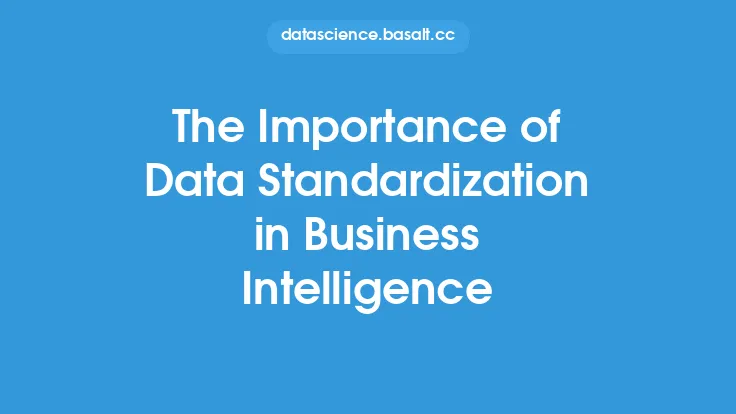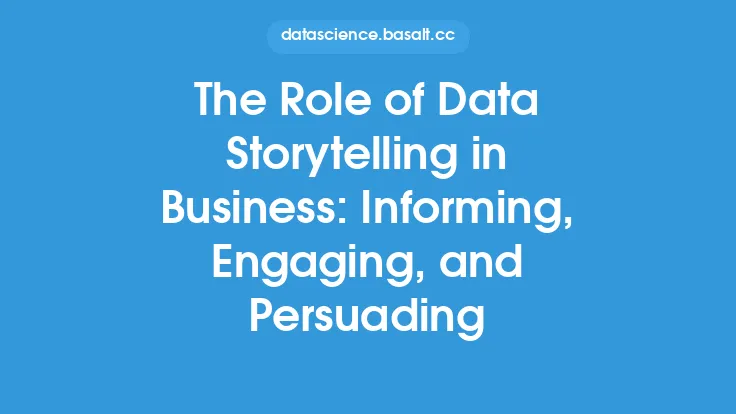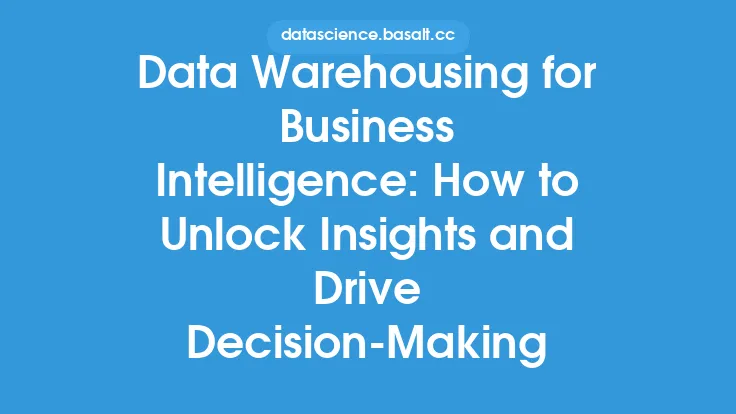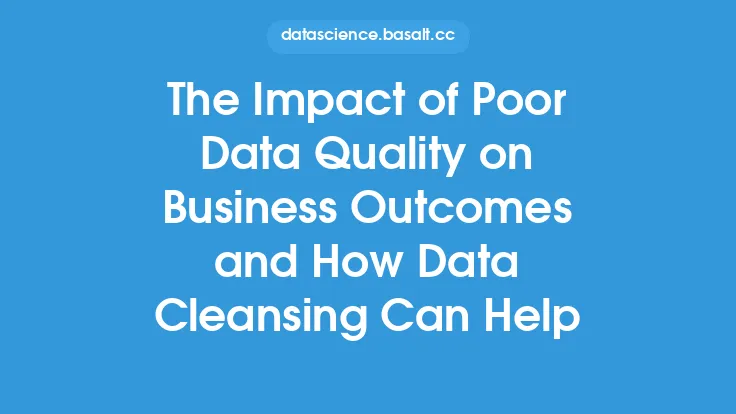In today's data-driven business landscape, organizations are constantly seeking ways to improve their decision-making processes, enhance operational efficiency, and gain a competitive edge. One crucial aspect that can help achieve these goals is standardizing data for business intelligence. Data standardization is the process of organizing and formatting data in a consistent and uniform manner, making it easier to access, analyze, and interpret. By standardizing data, businesses can unlock a wealth of benefits that can have a significant impact on their overall performance.
Introduction to Data Standardization
Data standardization involves creating a common language and framework for data, ensuring that all data elements are defined, formatted, and structured in a consistent way. This process helps to eliminate data inconsistencies, errors, and ambiguities, resulting in high-quality data that can be trusted and relied upon. Standardized data enables businesses to integrate data from various sources, systems, and departments, providing a unified view of the organization and facilitating better decision-making.
Benefits of Standardizing Data for Business Intelligence
Standardizing data for business intelligence offers numerous benefits, including improved data quality, increased data consistency, and enhanced data integration. With standardized data, businesses can:
- Reduce data errors and inconsistencies, resulting in more accurate analysis and decision-making
- Improve data sharing and collaboration across departments and teams
- Enhance data security and compliance by ensuring that sensitive data is handled and stored consistently
- Increase the speed and efficiency of data analysis and reporting
- Support better decision-making by providing a unified and consistent view of the organization
Technical Aspects of Data Standardization
From a technical perspective, data standardization involves several key steps, including data profiling, data cleansing, and data transformation. Data profiling involves analyzing data to identify inconsistencies, errors, and patterns, while data cleansing involves correcting and standardizing data to ensure consistency and accuracy. Data transformation involves converting data into a standardized format, such as a common data model or schema. Additionally, data standardization may involve the use of data governance tools, such as data catalogs, data dictionaries, and metadata management systems, to ensure that data is properly documented, managed, and maintained.
Data Standardization and Business Intelligence Tools
Business intelligence tools, such as data warehouses, data lakes, and business analytics software, rely heavily on standardized data to function effectively. By standardizing data, businesses can ensure that their business intelligence tools are able to access, analyze, and report on data consistently and accurately. This enables organizations to gain insights into their operations, customers, and markets, and make data-driven decisions to drive business growth and improvement. Some common business intelligence tools that benefit from standardized data include:
- Data visualization tools, such as Tableau and Power BI
- Business analytics software, such as SAS and IBM Cognos
- Data mining and machine learning tools, such as R and Python
Best Practices for Implementing Data Standardization
To implement data standardization effectively, businesses should follow several best practices, including:
- Establishing a data governance framework to oversee data standardization efforts
- Defining clear data standards and policies
- Implementing data quality checks and validation rules
- Providing training and support to employees on data standardization procedures
- Continuously monitoring and evaluating data quality to ensure that standards are being met
Challenges and Limitations of Data Standardization
While data standardization offers numerous benefits, it also presents several challenges and limitations. These include:
- The complexity and cost of implementing data standardization initiatives
- The need for significant cultural and organizational change
- The potential for data standardization to stifle innovation and creativity
- The challenge of balancing data standardization with the need for data flexibility and adaptability
- The risk of data standardization initiatives being overly ambitious or unrealistic
Conclusion
In conclusion, standardizing data for business intelligence is a critical aspect of modern business operations. By standardizing data, organizations can improve data quality, increase data consistency, and enhance data integration, ultimately leading to better decision-making and business outcomes. While data standardization presents several challenges and limitations, the benefits far outweigh the costs, and businesses that invest in data standardization initiatives are likely to see significant returns on their investment. As the business landscape continues to evolve and become increasingly data-driven, the importance of data standardization will only continue to grow, making it an essential aspect of any organization's data management strategy.





